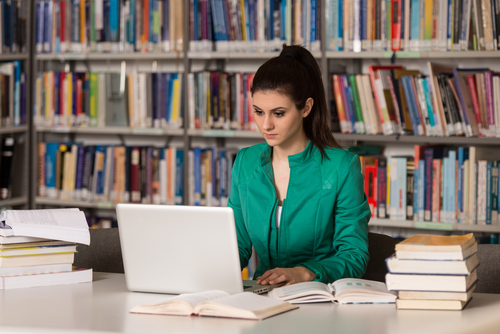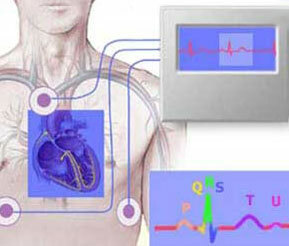
Live and learn! - this wonderful saying perfectly characterizes the ideal modern person who is constantly learning something new, opening up new and new horizons. For most young people, higher education remains the most important step towards a successful career and broad opportunities in the future. But studies at the university do not always pass without a trace - for many students it turns into health problems. And the point is not so much in the notorious strength of the granite of science, but in the fact that studying at a university implies a lot of stress. Including eye strain. And in recent years, the load on the eyes of young students has only grown! A modern student not only reads books and notes lectures, but also spends many hours at the computer, in as a result, young guys who came to universities healthy and strong come out of them with a diploma in their hands and glasses before our eyes. But their life is just beginning!
However, trouble can be avoided if you think about the problem in time and look for ways to solve it. Specifically, ask the following questions:
Computer - Should You Give It Up?
It makes no sense to exclude or significantly restrict the use of gadgets in the life of a modern student - a computer allows in a matter of seconds to receive and analyze the necessary information, make the necessary calculations, and the phrase "write a term paper" is only a figure speech. Now term papers are not written, but typed in a text editor, so that later they can be printed. The computer has become a reliable friend of the student, but in order for it not to harm the eyes, it is necessary order to observe the rules of hygiene of vision, learning them on time is no less important than learning the art of composing abstract.
How to work properly at a computer?
It is unacceptable to work at the computer or with textbooks for several hours in a row. Ophthalmologists recommend taking short breaks every hour: for example, after 45 minutes of work, a 10 minute break. During rest, you must definitely take a break from gadgets and books, take a walk, do simple gymnastics for the eyes or do a little exercise. Unfortunately, more often you can observe a completely different picture: looking up from a book or computer, a student immediately begins to scroll through updates in social networks from a smartphone. Eyes with such "rest", of course, will not rest.
How to survive the session?
During the session, you have to work a lot more, but you need to remember that sitting over books and a computer day and night is only will provoke overstrain (not only the eye, but also mental, nervous), which can result in overwork, a nervous breakdown and a decrease visual acuity. No matter what important exam lies ahead, during the session you need to give your eyes a rest, and periodically walk, and sleep at night. The mode of work with gadgets and books remains the same: ten-minute breaks after every 45 minutes of work.
What should be the student's workplace?
Correct seating at the table is of paramount importance. A classic check of the distance from the eyes to the textbook, taken from elementary school, is to put your hand on the elbow so that the forearm is perpendicular to the table and touch the outer corner of the eyes with your fingers - remains relevant in the student body, when working at a computer and laptop. Moreover, it is important that such a distance is maintained not only to the keyboard of the gadget, but also to its screen. The workplace must be illuminated! The light from the monitor, as it seems to many young people, is not enough - on the contrary, a bright screen creates a contrast with the dark room around, which causes excessive eye strain.
What should be the student's diet?
It is important to eat right. The student should not be hungry, and even more so, his stomach should not be full of fast food or instant noodles. The diet must necessarily contain fruits and vegetables, berries (especially blueberries), fish, whole grains - these products contain vitamins and trace elements necessary for the normal functioning of the eyes.
Will taking vitamins help your eyesight?
In addition to proper nutrition, multivitamin preparations with lutein and blueberry extract help to saturate the body with vitamins useful for vision. Doctors often recommend Vitrum Vision Forte to students, a multivitamin complex designed specifically to support the eyes. This is a drug, therefore, it has passed all the necessary tests of clinical efficacy and safety. It contains a large amount of lutein (6 mg!), Which protects the retina, zeaxanthin, selenium, zinc and rutin, as well as vitamins A, C, E, B2 and blueberry extract. This combination of active ingredients in optimal dosages helps to relieve visual fatigue and prevent visual impairment during study. Doctors recommend taking lutein-containing preparations for at least 3 months.
The eyes need constant attention and care - and then even strenuous studies at the university will not cause a decrease in vision and eye diseases!
Alina Safronova, ophthalmologist of the medical diagnostic center of the General Staff of the Armed Forces of the Russian Federation



